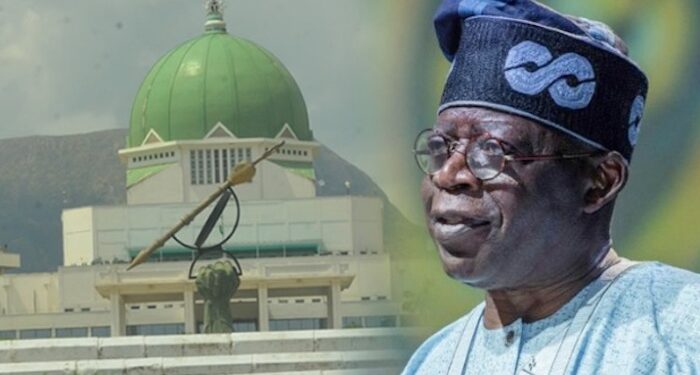The National Assembly has expressed deep disappointment over the inadequate implementation of the 2024 national budget by the administration of President Bola Tinubu. The federal legislature raised concerns regarding the large disparity between recurrent expenditure and capital expenditure, which continues to affect the effectiveness of the country’s economic policies.
During a joint sitting of the Senate and House of Representatives Committees on Appropriation, chaired by Senator Solomon Adeola and Hon. Abubakar Birchi, lawmakers noted that the insufficient release of funds for capital projects in the current fiscal year remains a significant issue. The session, which also included discussions on the 2025 Appropriation Bill, was held in collaboration with the Presidential Economic Team.
Adeola and Birchi jointly called for more urgent actions to release funds for capital projects, emphasizing that such investments are crucial for the government to make a tangible impact on the lives of ordinary Nigerians. They pointed out that recurrent expenditures, though fully funded, affect only a small portion of the population, while capital projects such as schools, roads, hospitals, and energy infrastructure would benefit millions of citizens.
A statement from the media adviser to the Senate Committee Chairman, Chief Kayode Odunaro, highlighted the findings of the economic team, led by the Minister of Finance, Mr. Wale Edun. According to the report, the overall performance of the 2024 budget was at just 43 percent, with recurrent expenditure fully implemented at 100 percent. However, the capital expenditure performance was dismal, at only 25 percent.
Adeola, a staunch advocate for budget reform, criticized the high ratio of recurrent to capital expenditure, currently standing at about 80 percent for recurrent and 20 percent for capital. He proposed a revision of this ratio to 60 percent for recurrent and 40 percent for capital as a way to accelerate economic growth and development. He also stressed that without substantial capital releases, important projects could be abandoned, derailing the government’s Renewed Hope Agenda.
In agreement with Adeola, Birchi underscored the importance of boosting funding for capital projects, especially those aimed at improving critical infrastructure like hospitals, schools, and roads. He further pointed out that excessive recurrent expenditure, which primarily covers wages, debt repayment, and administrative costs, benefits only a small percentage of the population, while the capital projects would directly impact the vast majority of Nigeria’s 200 million citizens.
The Finance Minister, Mr. Wale Edun, confirmed that there were still pending capital releases awaiting funding. However, he noted the country’s caution in borrowing and spending, citing recent fiscal crises in countries like France and Germany as cautionary tales. Edun reassured the legislature that warrants for capital payments are pending, but stressed the need for fiscal prudence.
Meanwhile, the Minister of Budget and Planning, Alhaji Abubakar Bagudu, defended the substantial recurrent expenditure, attributing it to Nigeria’s level of development and its current socio-economic challenges. He explained that much of the recurrent spending is directed towards national security, particularly military operations to combat insecurity, which in turn supports agricultural production and broader economic activities.
The Director General of the Budget Office, Dr. Tanimu Yakubu, acknowledged that some of the recurrent expenditure stemmed from inherited legacies, such as unpaid pensions and gratuities. However, he assured that these issues are being addressed, and suggested that future legislation might be needed to cap the size of recurrent spending in future budgets.
The session, attended by key figures such as Minister of State for Finance, Dr. Doris Uzoka-Anite, and permanent secretaries from the Ministry of Finance and Ministry of Budget and National Planning, also touched on concerns over tax waivers and holidays, which are perceived to reduce government revenue.


